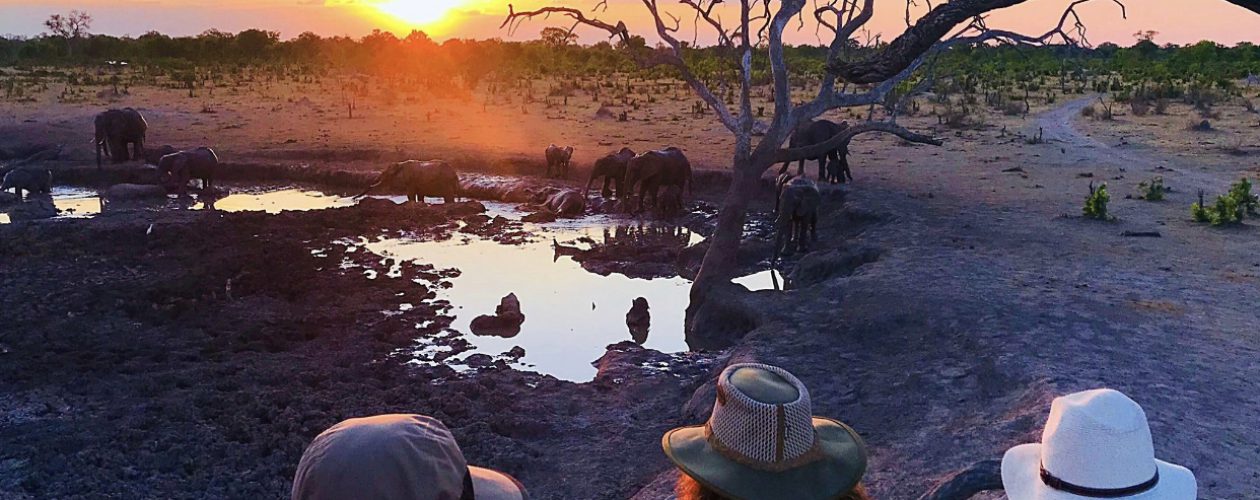A safari is about enjoying the rich diversity of wildlife, big and small. Guides and trackers do their best make your time together as rewarding as possible, so it is important to communicate your interests, but also to be mindful of other guests’ preferences. Whether you are hoping for encounters with the “Big Five” or the sight of a thousand wildebeest crossing a river together, please keep an open mind and do not let such preoccupations about specific species or events create stress or frustration.

For most of us, the game drives, whether they be in the early morning, late afternoon, or a full-day excursion, are the exciting component of a safari in Africa. Typically the vehicles will accommodate a maximum of 6 passengers, which means you may be sharing the excitement with a few others. In consideration of your fellow passengers, your guide, trackers, and the wildlife around you, it helps to be familiar with some basic safari protocols to ensure a safe and enjoyable experience for everyone.

Be Punctual
It is not always easy to rise and shine at 5:00am but remember the reason for those early departures. These hours while the animals wake up and start moving about to quench their thirst or hunger, may be the most rewarding of the day, and the light of dawn most favorable for photography , so try not to keep your guide and fellow guests waiting while the sun rises.

Stay Seated and Inside
The environment and animals you are about to encounter are wild, untamed, and unpredictable. Your guide’s instructions are essential for your safety. Never stand up from your seat or leave the vehicle without your guide’s consent. Unforeseen consequences always outweigh the risk.

Share Your Seat
In most cases every guest has a “side seat” to maximize the view and freedom of motion. Some guests may like to alternate their vantage points, others, for mobility reasons, may want to stay in the same seat throughout. Be considerate and if you have a serious problem with the seating arrangement after a couple of drives, discuss it with your guide in private. There is usually a simple way to avoid embarrassment or confrontation.
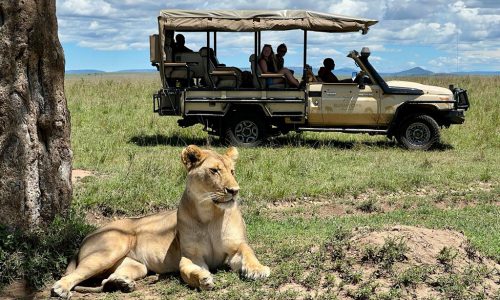
Mute the Camera
Did you know you can snap pictures without making a snapping sound? Noises like clicking and beeping can disturb wildlife, especially young or shy animals, and disrupt the natural ambiance. Mute your devices to maintain the quiet, which others will also appreciate. Resist editing photos during game drives and save it for when you’re back at camp.
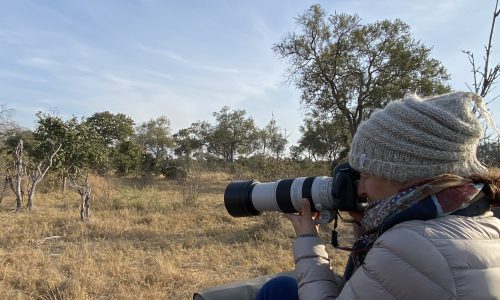
Ditch the Cell Phone
When out on a game drive, bush walk, or mokoro ride, consider leaving your cell phone at camp or use it strictly for taking photos. Avoid the temptation to scroll, text or call. Just like at a theatre, it disturbs the experience for others. Immersing yourself in the sights and sounds of the African wilderness is part of the magic, whether one chooses to capture and share it constantly, or not at all.
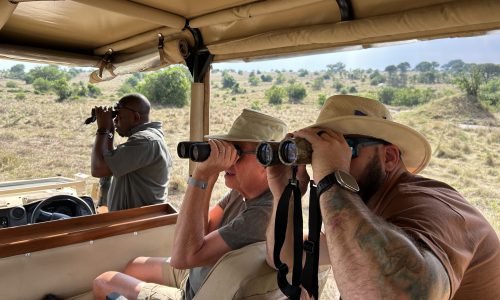
Bring Your Inside Voice Outside
Guides enjoy interaction with their guests, and there will be plenty to share and enjoy all around, but whether asking a question or pointing out something, keep your voice low during game drives or nature walks. Animals may flee at the sound of the slightest noise, and fellow guests recording videos will appreciate the absence of human voices. Avoid dominating conversations, especially if you’ve been on safari before, and give others the space to enjoy their experience.
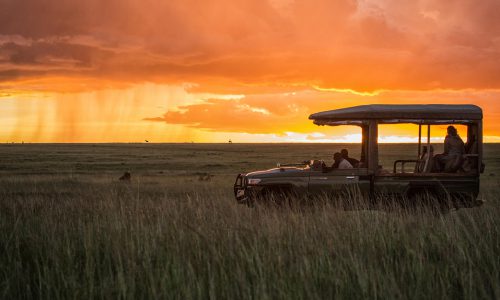
Follow Instructions
If you have been advised always to walk with a staff member after dark, it would be for good reason, so don’t be the “adventurer” who takes off without warning. Not only will it set off a panicked search for you, but walking around at night can be dangerous. Your night vision is no match for most creatures, but the greatest danger would actually be if you did manage to surprise or alarm an unsuspecting animal in the dark.

Be Polite
In many African cultures, greetings are important and should not be rushed. When interacting with locals, always begin with a polite greeting and wait for a response before asking questions. If you’d like to take a photo of someone, ask for their permission first, and if you’re unsure whether your request will be understood, ask your guide to assist. Avoid mimicking or laughing at local accents or mispronunciations. Remember that increased volume does very little to foster better understanding. Dressing conservatively is also advised to avoid embarrassment in typically more conservative local cultures.

Children on Safari
If traveling with young children, consider booking a private vehicle, even if it’s not required by the lodge. Long game drives can make kids restless, potentially bothering other guests. Private drives offer more flexibility, allowing for shorter, tailored excursions. Some lodges also provide activities to make the experience fun and educational—ask your consultant for recommendations.
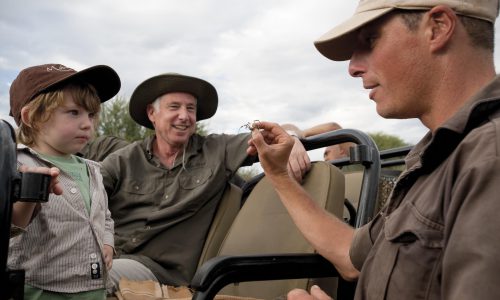
Bringing Gifts
Gift-giving requires sensitivity. Offering children money or buying trinkets from them may encourage them to skip school in pursuit of tourist handouts. Rather than bringing sweets or gifts, consider shopping locally or donating to a local organization. Your generosity will have a much greater impact.

Tipping
Tipping is an important part of the safari experience, as it constitutes a significant portion of staff salaries. While tipping is always discretionary, it’s customary to tip your guides, drivers, and camp staff, especially if you’ve received excellent service. Before your trip, consult our tipping guidelines to ensure that you have enough cash.

Following to these guidelines will foster a more rewarding and enriching safari experience and ensure your comfort and safety as much as for your fellow travelers. If you have any questions or concerns, do not hesitate to ask the camp staff or guides—they’re there to help you make the most of your adventure.
